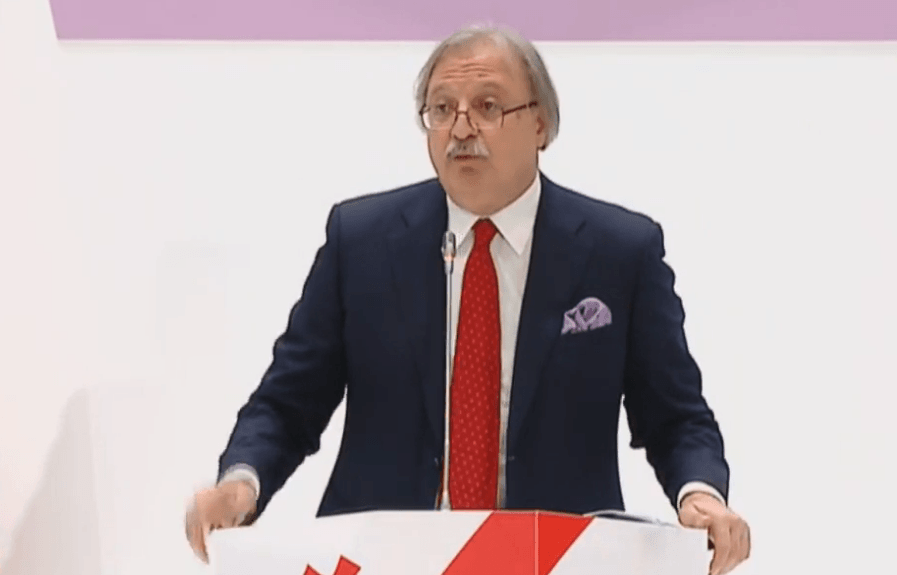Grigol Vashadze, Chairman of the United National Movement, Georgia’s largest opposition party, announced on December 15 about stepping down from all held positions and leaving the party.
Vashadze wrote in his Facebook post that “there are facts [in the party] that [he] will categorically not tolerate.” The party chairman said he does not agree with tactics chosen by the majority of the UNM leadership without consulting party members, and the absence of a party strategy “is even more unacceptable.”
Vashadze said he will neither tolerate the appearance of “odious figures around and inside the party” who were supposed to be left in the past and with whom the party will never gain voters’ trust.
He went on expressing concerns over “the campaign of attacks and insults” against the chiefs of diplomatic missions of strategic partners – launched “unclear by whom and why” – which is damaging Georgia’s relations with the U.S., the European Union, and EU member states.
“It gives the impression that those who are part of this campaign have never heard that attacking an Ambassador equals attacking a state he/she represents, which has been guarding the [Georgian] state and its territorial integrity since the day it regained the independence,” Vashadze remarked, presenting apologies to Georgia’s “friends.”
The announcement was preceded by a series of attacks against Western diplomats, including facilitators of the post-election talks between the boycotting opposition and ruling Georgian Dream party by Nika Gvaramia, the UNM-close director of Mtavari Arkhi TV. Gvaramia has been openly targeting and pressing some serious accusations against EU Ambassador Carl Hartzell and particularly U.S. Ambassador Kelly Degnan. On the night before Vashadze’s decision came out, UNM leader and former Georgian President Mikheil Saakashvili also criticized German Ambassador Hubert Knirsch over his opposition-critical remarks, questioning Ambassador’s qualification and intelligence.
Politicians from both the ruling party and the opposition reacted to Vashadze’s decision. “I think Grigol Vashadze is a big loss for the UNM, but I understand his decision and wish him luck,” his party colleague Salome Samadashvili said. Khatia Dekanoidze, another UNM leader, criticized the chairman for quitting with a sole statement, with no prior communication with his colleagues, and disagreed with Vashadze’s concerns. “Generals do not disapprove of the army’s strategy,” she added.
MP Irakli Kobakhidze, executive secretary of the ruling Georgian Dream party, also commented on the announcement, saying that political processes unfold “in the right direction.” He noted that so-called “odious figures” are today dissolving [United] National Movement and European Georgia.
Zura Japaridze, leader of the Girchi party, said he shared Vashadze’s concerns over the criticism of ambassadors, however, refused to give more comments citing “party-internal affairs.” Levan Ioseliani from the Citizens party noted that the decision was proof that “there are differing opinions in the opposition,” including varying views over the current opposition tactics.
Vashadze first confronted his party colleagues early in November when he unilaterally spoke about moving “street processes” to the negotiating table, implying a possible end of boycott that was announced by all major opposition parties following legitimacy concerns of the parliamentary polls.
A former Soviet diplomat who served as a Foreign Minister under the UNM rule, Vashadze was party pick for the 2018 Presidential polls and was elected as the party chairman in March of 2019, replacing Mikheil Saakashvili. In the October 31 parliamentary elections, where Vashadze was running as a majoritarian MP candidate for the Kutaisi constituency, the UNM garnered 27,18% of votes and 36 MP mandates which the party intends to reject.
This post is also available in: ქართული (Georgian) Русский (Russian)

